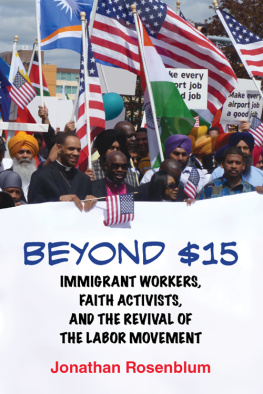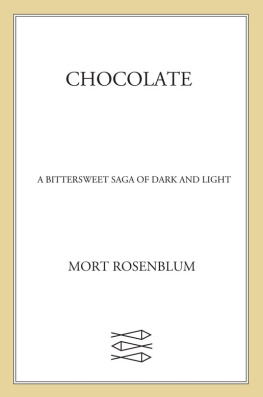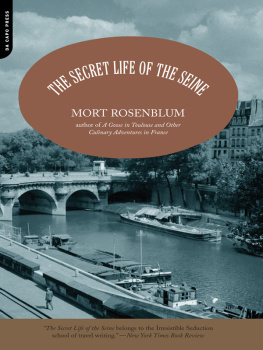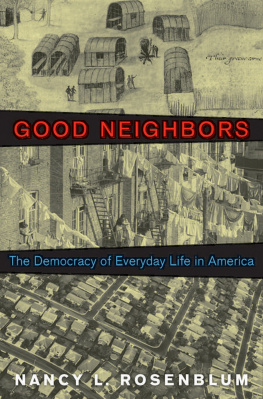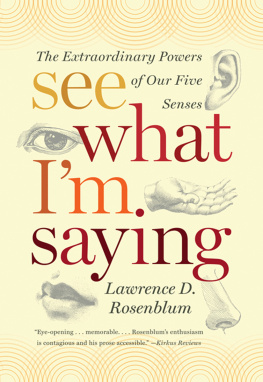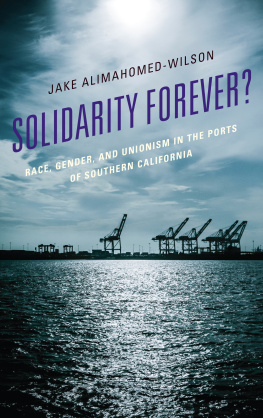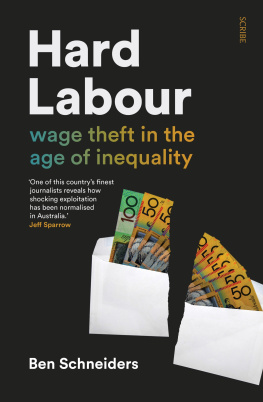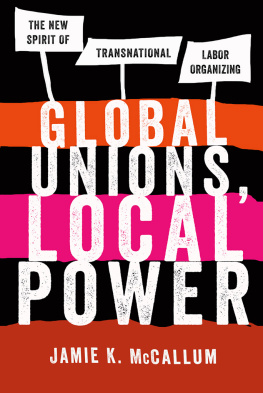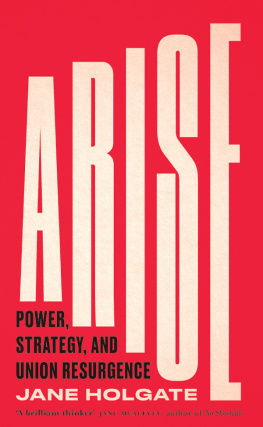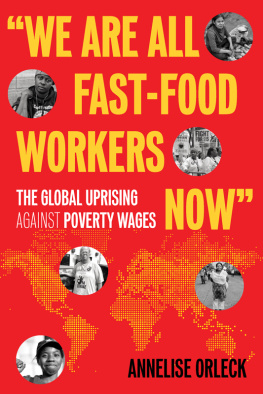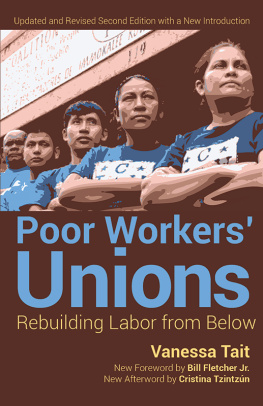
In writing about the present and future of our labor movement, I have drawn heavily from my elders in struggle, whose experience and wisdom have guided me over the years: Tyree Scott, the Reverend James Orange, Will Parry, Irene Hull, and Lonnie Nelson.
PREFACE
LESSONS IN POWER
A FLEETING INCIDENT MORE THAN three decades ago taught me a harsh lesson about power. The immediate issue at hand was relatively inconsequential, but the lesson stayed with me, pointing me in a life direction that ultimately led to this book.
It was 1984. I was working as a newspaper reporter at the Ithaca Journal, an upstate New York daily newspaper owned by the Gannett Company, at the time the largest print media corporation in the country. The thirty of us who belonged to the local branch of the International Typographical Union were overmatched in every possible way. We had an open shop, meaning union membership was voluntary. We staged a bake sale fund-raiser in downtown Ithaca to cover legal bills. Progress in contract negotiations was glacial. The company attorney would jet in from headquarters to swat away our proposals. Bluntly, he explained, Were not about to let the inmates run the asylum.
One morning on deadline the copy editor handed me his edits to a story I had written. I objected to the changes, and asked that my byline be removed. He was responsible for approving the copy, but under our union contract, it was my sole prerogative as to whether my name appeared with the story. Indeed, the right to remove our byline was one of the few absolute rights we enjoyed as reporters.
Suddenly, I found myself in the managing editors office, accompanied by our shop steward. What do you think youre doing? asked the editor, his voice rising in anger.
I didnt agree with the edits, I replied. So I asked that my byline be removed. I have that right under our union contract. I waved the labor-management agreement at him. A large man, the editor stood up, his face red.
I dont give a fuck whats in that contract, he yelled, leaning over me, his index finger jabbing in my face. You do that again, and youre out of here. Got it?
The contract was a legal document, representing the rules we all agreed to be bound by. Werent we a nation governed by laws? But it was quite apparent that we werent in the editors office having a pleasant chitchat about theories of civil society or the finer points of contract law; my steward and I were being administered a ruthless reminder about how power operated in the real world.
I left the editors office shaken, newly appreciating that the rights of working people, from trivial to historic, whether in legal workplace contracts or national laws, are only meaningful to the extent were capable of defending them. Failing that, theyre just empty words on paper.
A few months after the editors smackdown, I quit the Journal, stuffed my lifes possessions in the back of a rusty pickup, and headed out to be a full-time union organizerfirst briefly in Louisiana, then in New England for five years, then as an organizer for the Service Employees International Union (SEIU) traveling around the country, before finally settling in Seattle in 1991.
Once in Seattle, I led the formation of a local Jobs With Justice coalition, staging rallies to support workers organizing and to protect jobs and social benefits. Many Jobs With Justice actions involved civil disobedience. Seniors threatened by Medicare cuts occupied the local Republican political headquarters, and workers took over a corporate banquet held to celebrate the passage of the job-killing North American Free Trade Agreement (NAFTA). After Alaska Airlines fired flight attendants for striking, we led massive street protests, blockaded the companys headquarters, and handbilled passengers at thirty thousand feet. The workers won their jobs back and a new union contract. Hundreds of community allies blocked patrons from attending a struck theater, forcing management back to the bargaining table, where they reached a settlement with the theaters musicians. When I wasnt planning or mobilizing for the next disruption, I spent a fair amount of time at police headquarters and local jailssometimes extracting a colleague who had been arrested, more often in handcuffs myself. We were exercising collective power with the tools we had availableand we were winning.
When the World Trade Organization ministers descended on Seattle in late 1999, I was working for the AFL-CIO, directing a multiunion regional organizing project. It was remarkable to witness thousands of union members unite in the streets with even greater numbers of environmental and civic activists, roiling the proceedings inside the WTO meeting. And after the police filled the streets with tear gas and the mayor banned further demonstrations downtown, it was yet more inspiring to witness the new protest alliance defy the mayor, march downtown, and stage an occupation outside the county jail to win the release of more than six hundred arrested protesters. For me the WTO protests represented a grand display of the principle that had first crystallized in my mind after that trivial byline battle at the Ithaca Journalthe balance of power is always in play.
Yet even amid these inspiring struggles, the inescapable reality during the decades before and after the turn of the century was that we were, as a union movement, sliding toward the abyss. A Democratic president, Bill Clinton, had forced NAFTA on us, sending jobs overseas, and then had proceeded to slash the already meager social safety net. His Republican successor, George W. Bush, went after public employees relentlessly, attacked pensions, and encouraged companies to offshore jobs. Private employers successfully broke strikes, cut wages, wiped out retirement benefits in every imaginable industrypackinghouses, auto plants, mining, steel mills, trucking, aerospace, and on and on.
When as a young newsroom worker I signed my first union card in the early 1980s, I was joining a labor movement that counted one in every five workers as membersstumbling badly, but at least alive. Just twenty-five years latera sliver of time in historys arcwhen Barack Obama took the presidential oath in 2009, union membership had slid to one in every eight workers. And my newspaper union? Completely gone, along with many otherswiped out by corporate executives who did to entire workforces, communities, and industries what the Journals editor had done to me and my shop steward many years prior.
IT WAS EASY, of course, to castigate corporate America for this miserable state of affairs. But as I traveled from one campaign to another, becoming acquainted with union members and their leaders in cities around the country, I came to see that corporate America was only half of our problem. The other half was the union movement itself.
In my early years of organizing, my union peers and I would read accounts of how the auto worker sit-down strikes of the 1930s forced the Roosevelt administration to back union rights, or wed pick up books about militant industrial unions like the United Electrical workers, once three-quarters of a million strong and now reduced to relative insignificance, or wed talk to an old-timerlikely a communist or socialist of some stripeabout the massive wave of member-led strikes that followed World War II. What was most remarkable about these educational moments was not the savagery of industrialists, or the ruthless efficiency of McCarthy purges, or the cold indifference of political elites who cast aside their proworker pledges as soon as the election was over, but the degree to which unionsand especially the leaders of unionsfacilitated their own destruction.

